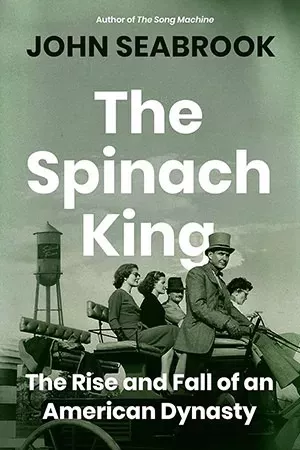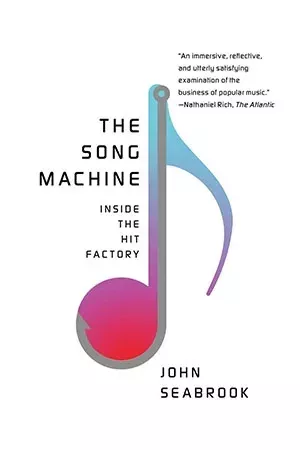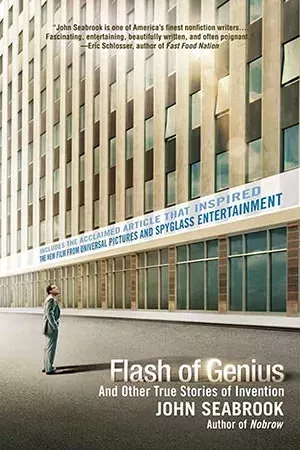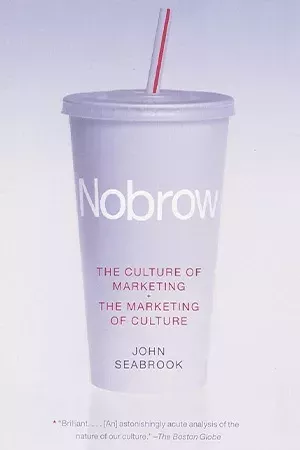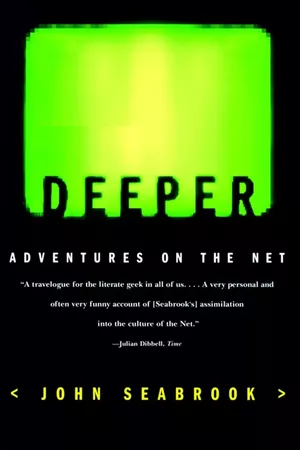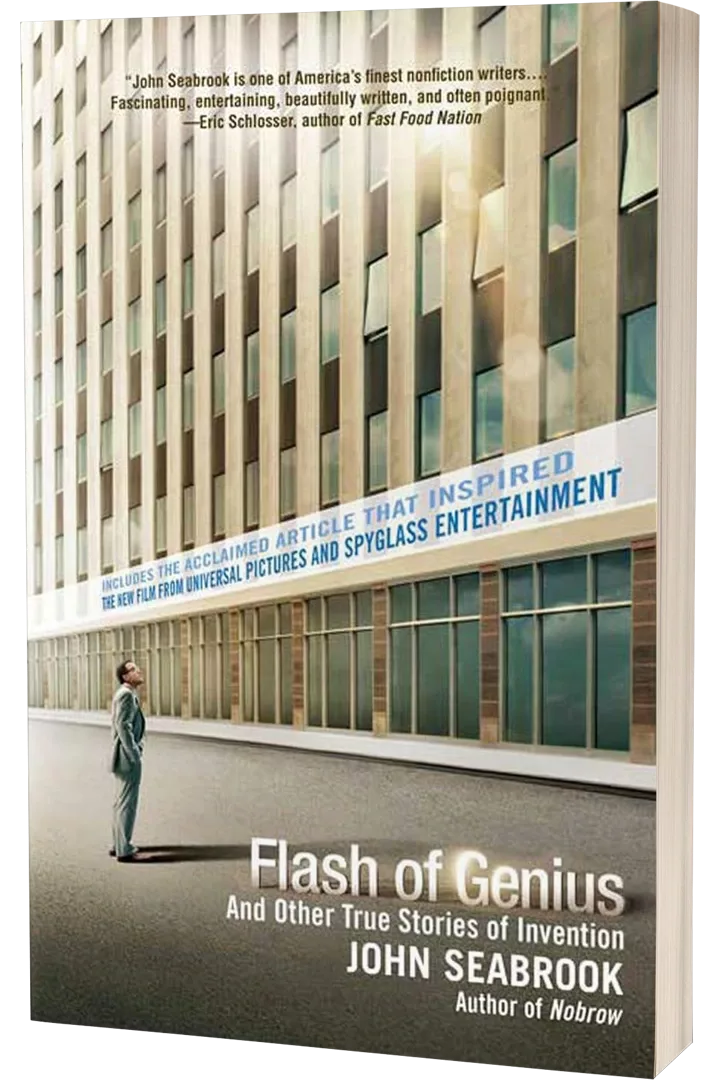“John Seabrook is one of America’s finest non-fiction writers….Fascinating, entertaining, beautifully written and often poignant…”
Flash of Genius
And Other True Stories of Invention
Flash of Genius And Other True Stories of Invention by John Seabrook, staff writer for The New Yorker, is a collection of true stories about where great ideas come from, and is the basis for the Major Motion Picture starring Greg Kinnear.
In Flash of Genius, John Seabrook explores the moment when inspiration strikes in an otherwise average life, and what happens when that idea moves out into the larger culture and takes on a life―and commercial possibilities―of its own. The title piece in this collection is the David v. Goliath story of Bob Kearns, a professor and inventor who came up with something we all use every chance we get: the intermittent windshield wiper. When Kearns' patents were infringed, he fought General Motors, Ford, and Chrysler, and eventually prevailed in a classic American story of never giving up, never backing down.
Seabrook has been fascinated by stories of invention and entrepreneurship since childhood, when he grew up with an uncle who invented something as ubiquitous as Bob Kearns' wipers: boil-in-bag vegetables. In Flash of Genius, Seabrook also writes about his family's invention and about thirteen other iconoclastic visions that turned into the stuff of every day.
Praise & Reviews for Flash of Genius
-
Author Seabrook (Nobrow: The Culture of Marketing, the Marketing of Culture), a staff writer for The New Yorker (where these 15 essays first appeared), says in his introduction that he has “always been interested in the circumstances, unforeseen obstacles, and unimagined outcomes of ‘inventive acts.’ ” It’s clear that he’s also fascinated by interconnectedness: how the prospector in Nevada links to investors in gold futures, how the business of scrap metal links American trash to Chinese entrepreneurship. Each story is a brief but detailed look inside what might seem arcane businesses, projects and ideas (like the research into an anachronistic Greek artifact called the Antikythera Mechanism), made clear and compelling by Seabrook’s focus on personal satisfaction over business success, though the themes of human inventiveness and human acquisitiveness twine throughout (with a few exceptions, money is a huge driving force in these stories). Especially entrancing are the “Fruit Detective,” the founding of the Weather Channel, the efforts of a Hollywood animatronic designer and an MIT scientist to build a “lovable” robot, and the title essay, following windshield wiper revolutionary Bob Kearns’s long fight with Ford Motors (and basis for the current feature film).
— Publishers Weekly -
“Although not all the stories in this book relate directly to inventors, as the title suggests, they certainly all feature inventive individuals. The title story concerns Bob Kearns, who invented and patented the intermittent windshield wiper in the early 1960s only to have his idea stolen by Ford and every other major car manufacturer. Kearns spent the rest of his life suing Ford for infringing on his patents, and the story reveals as much about the nuances and flaws of the patent system as it does about the mind of the inventor. Seabrook takes the reader on a journey encompassing the evolution of video games, a “fruit detective” who seeks out the most exotic and flavorful varieties of fruits, a seed-bank expert, an ancient Greek “computer,” the mind-set of a gold miner, and the creation of the weather channel, among others. By the time we get to the recombinant DNA of the Flavr Savr tomato, the sole inventor starts to look like a relic from the past; however, there is a common thread that runs through Seabrook’s narrative that keeps that spirit alive.”
— David Siegfried, Booklist
